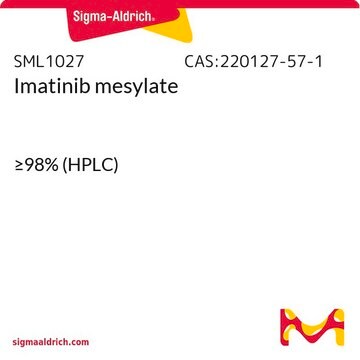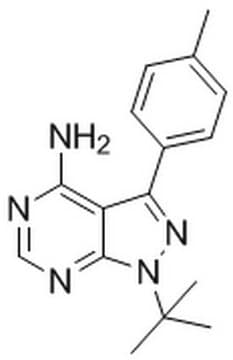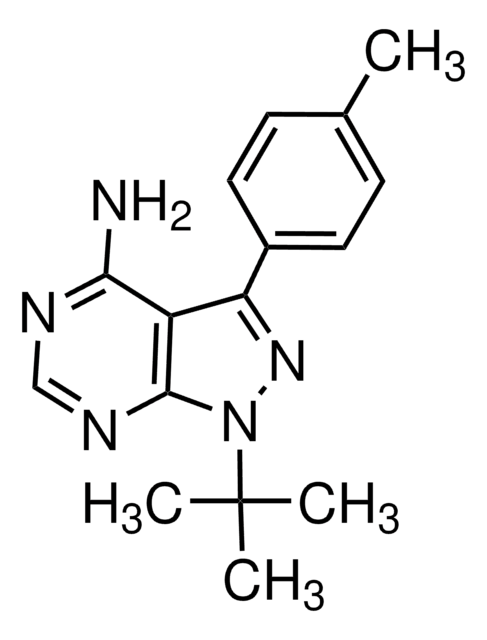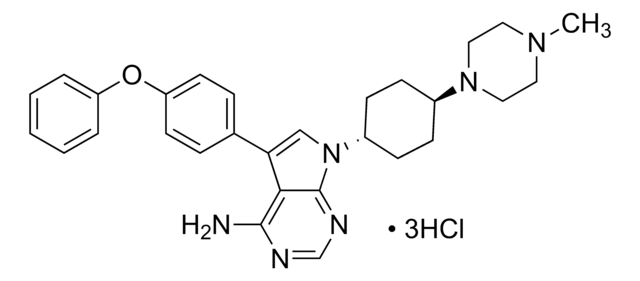S2075
Src Inhibitor-1
≥98% (HPLC)
Synonym(s):
4-(4′-Phenoxyanilino)-6,7-dimethoxyquinazoline, 6,7-Dimethoxy-N-(4-phenoxyphenyl)-4-quinazolinamine, SKI-1, Src-l1
About This Item
Recommended Products
Quality Level
Assay
≥98% (HPLC)
form
powder
storage condition
desiccated
color
white
solubility
DMSO: >10 mg/mL
storage temp.
2-8°C
SMILES string
COc1cc2ncnc(Nc3ccc(Oc4ccccc4)cc3)c2cc1OC
InChI
1S/C22H19N3O3/c1-26-20-12-18-19(13-21(20)27-2)23-14-24-22(18)25-15-8-10-17(11-9-15)28-16-6-4-3-5-7-16/h3-14H,1-2H3,(H,23,24,25)
InChI key
DMWVGXGXHPOEPT-UHFFFAOYSA-N
Application
Biochem/physiol Actions
Features and Benefits
Storage Class Code
11 - Combustible Solids
WGK
WGK 3
Certificates of Analysis (COA)
Search for Certificates of Analysis (COA) by entering the products Lot/Batch Number. Lot and Batch Numbers can be found on a product’s label following the words ‘Lot’ or ‘Batch’.
Already Own This Product?
Find documentation for the products that you have recently purchased in the Document Library.
Customers Also Viewed
Articles
Src is the original member of a group of non-receptor protein-tyrosine kinases termed the Src family kinases (SFKs). Learn about the SFKs that, in humans, consist of eight members, a small group of atypical members, and two related kinases.
Src is the original member of a group of non-receptor protein-tyrosine kinases termed the Src family kinases (SFKs). Learn about the SFKs that, in humans, consist of eight members, a small group of atypical members, and two related kinases.
Src is the original member of a group of non-receptor protein-tyrosine kinases termed the Src family kinases (SFKs). Learn about the SFKs that, in humans, consist of eight members, a small group of atypical members, and two related kinases.
Src is the original member of a group of non-receptor protein-tyrosine kinases termed the Src family kinases (SFKs). Learn about the SFKs that, in humans, consist of eight members, a small group of atypical members, and two related kinases.
Our team of scientists has experience in all areas of research including Life Science, Material Science, Chemical Synthesis, Chromatography, Analytical and many others.
Contact Technical Service













